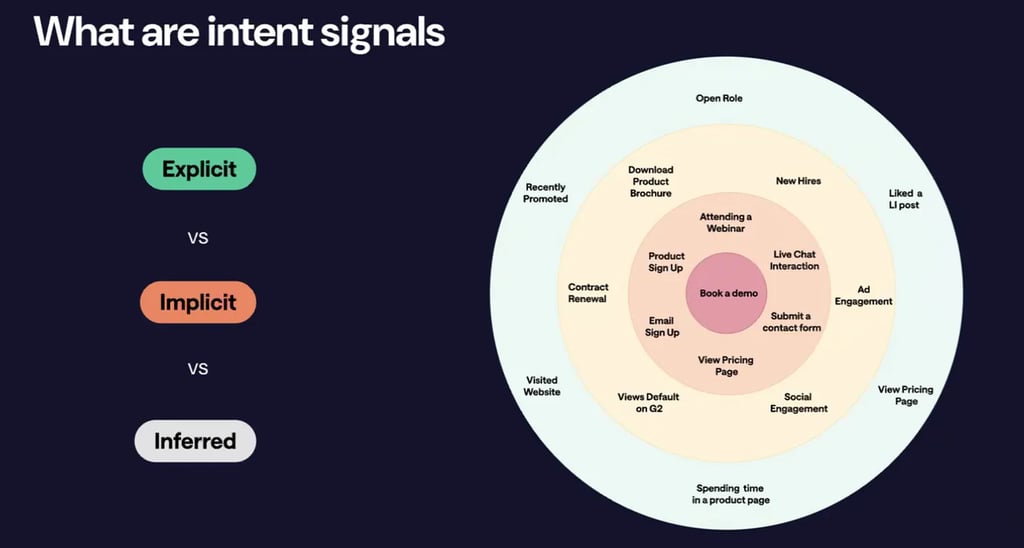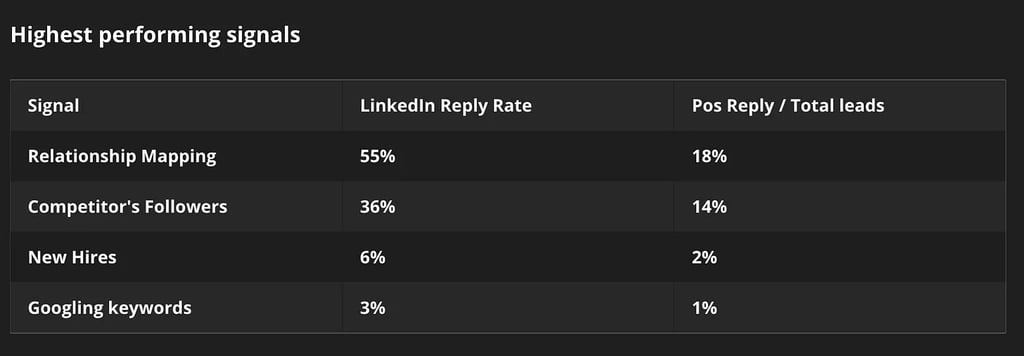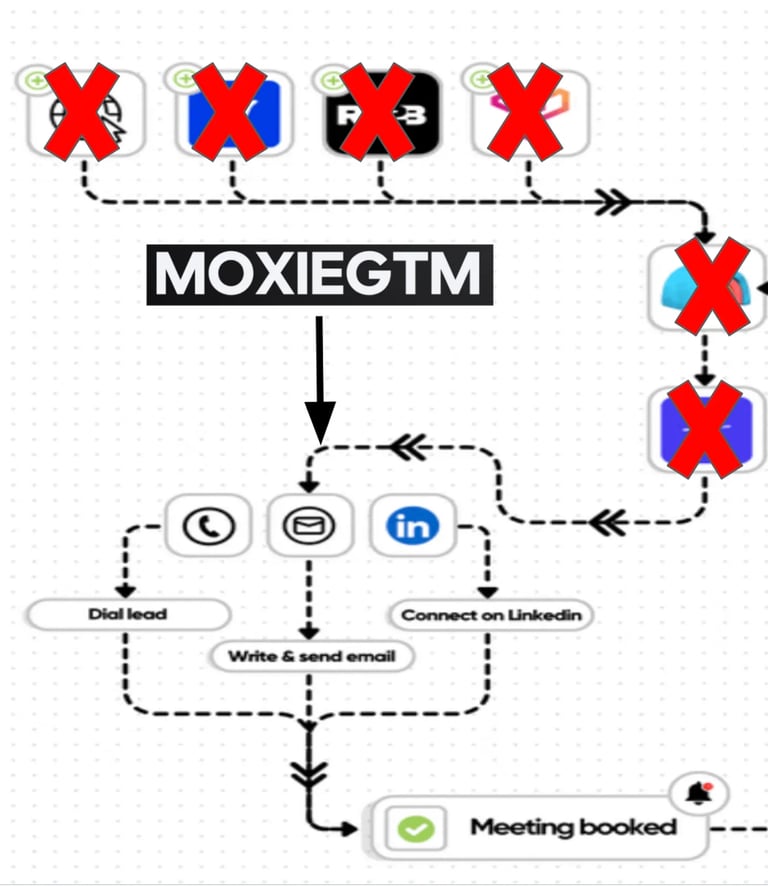How to Identify Which Signals Indicate Buying Intent
Discover how to identify true buying intent signals that convert. Learn proven strategies to prioritize, validate, and operationalize high-intent data in your GTM and RevOps workflows.
Richard F. Purcell
3/4/20253 min read


Understanding and acting on intent data is key for any modern go-to-market (GTM) strategy. Yet with a flood of tools and signals, how do you identify which ones truly matter? In a recent webinar titled "Routing on Intent Signals: Do’s and Don’ts", sales and RevOps experts Stan Rymkiewicz, Caitlyn Vaughn, and Matthew Volm shared proven tactics on how to filter the noise and act on signals that drive actual revenue.
Here’s what every sales leader, SDR, RevOps team, or founder should know when optimizing for high-intent lead generation.
🚫 Don’t Fully Automate Outbound: Timing + Relevance = Conversion
One of the biggest mistakes teams make is automating outreach based solely on raw signals. Yes, automation scales outreach, but poor timing and irrelevant messaging will destroy conversions.
Instead:
Let the rep own the message, not the tool.
Use intent signals to guide when to reach out, but keep the personalization human.
Avoid robotic callouts like: “Saw you visited our pricing page.”
These interactions feel intrusive. Be helpful, not creepy.
✅ Focus on Your Top 3–5 Intent Signals
When it comes to sales intent signals, less is more. Focus only on signals that:
Consistently predict conversion.
Can be routed into your existing sales workflows.
Are trackable without creating tech debt.
Popular intent signals include:
Content engagement on specific keywords
Engagement with your leadership team’s LinkedIn content
Followers of relevant influencers in your space
Repeat visitors to product or use-case pages
Every company is different, so experiment and validate which ones matter most for your ICP (ideal customer profile).
⚠️ More Tools = More Complexity
It’s tempting to stack software to track everything:
One tool for website tracking
Another for job change alerts
Yet another for community engagement
And still another for social media intent
Each tool might cost a few hundred dollars a month. But the real cost?
Evaluating and comparing tools
Training sales teams or RevOps to use them
Managing licenses and integrations
Hiring someone to manage them — and someone to manage that person
Plus: Time spent syncing disconnected systems
Instead of chasing “intent tech,” ask: Can your team actually act on the signals you're collecting?
MoxieGTM is a reader-supported publication. To receive new posts and support my work, consider becoming a free or paid subscriber.
📊 Real-World Example: How Revcast Operationalized Buying Signals
Take Revcast, an early-stage SaaS company, as a case study in getting intent signals right.
Here’s how they did it:
Tracked 15+ intent signals, including:
Competitor content engagement
LinkedIn profile views
Event attendance
Keyword-based Google searches
Followers of relevant influencers
Tested multiple outbound strategies for each signal type. Some signals led to cold emails, others to social selling, others to warm calls.
After 3 months, they identified 3 high-converting intent signals:
Engagers of CEO content
Followers of niche LinkedIn influencers
Clickers on specific topic-driven content
They integrated these into their Sales Engagement Platform. No more manual lead routing. No more guessing.
🚀 Result: 4X ROI in just 60 days.


💡 Micro Campaigns > Mass Blasts
One surprising insight? Low-volume campaigns had the highest conversion rates.
While many assume Google searchers are high intent, campaigns based on relationship mapping (like influencer engagement or founder content) were far more predictive of actual deals.
This supports what GTM pros like Brendan Short have been saying: #MicroCampaigns win in today’s noisy market.
🎯 Tools That Support Intent-Driven GTM
Use MoxieGTM to generate high-intent leads.
Use Default to route leads based on signal relevance — without needing to “own another tab.”
Both are designed to streamline your RevOps motion and reduce tool sprawl.


🤝 Are You a RevOps or GTM Agency?
If you’re an expert in lead routing, but need help with lead generation at scale, let’s connect. Our partner model supports RevOps teams that want to plug into proven demand gen frameworks without reinventing the wheel.
Final Takeaway: Consolidate + Experiment + Execute
You don’t need every tool. You need the right signals, a way to validate them, and a process to act on them.
Start by:
Consolidating your tech stack
Experimenting with different intent sources
Executing with discipline inside your workflows
Want help? Reach out.
Subscribe to MoxieGTM
By Richard F. Purcell · Launched 2 years ago
The newsletter for the busiest, most sophisticated GTM leaders. Discover step-by-step instructions for implementing unconventional GTM experiments, drawn directly from the operators who ran each campaign.
By subscribing, I agree to Terms of Use, and acknowledge its Information Collection Notice and Privacy Policy.
You don't have a pipeline problem. You have a process problem.
© 2025. All rights reserved.
Free Mid-Funnel Audit
Score your closed/lost + mid-funnel leads and identify top 20 % ready to re-engage.
